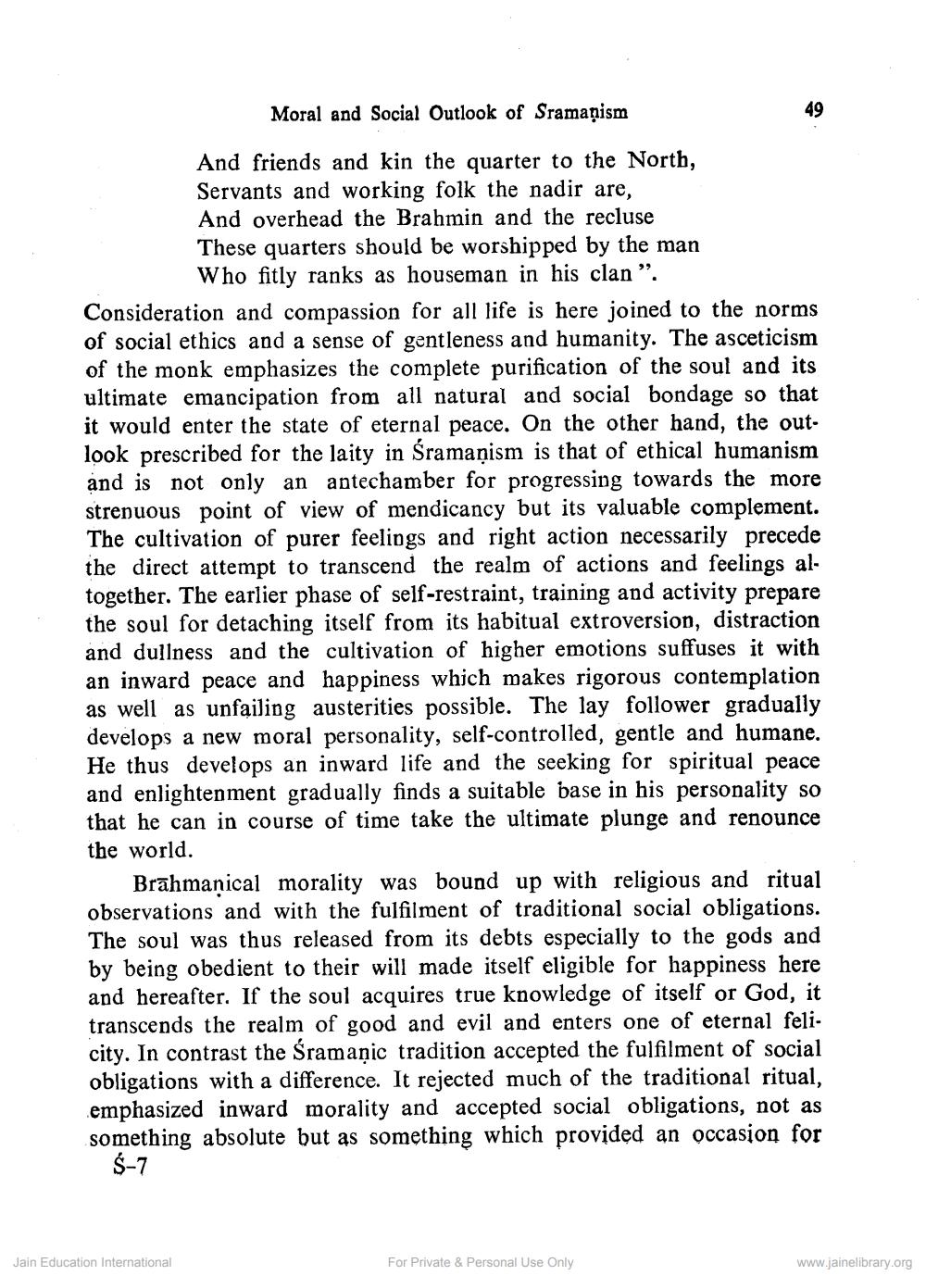________________
Moral and Social Outlook of Sramanism
And friends and kin the quarter to the North, Servants and working folk the nadir are, And overhead the Brahmin and the recluse These quarters should be worshipped by the man
Who fitly ranks as houseman in his clan”. Consideration and compassion for all life is here joined to the norms of social ethics and a sense of gentleness and humanity. The asceticism of the monk emphasizes the complete purification of the soul and its ultimate emancipation from all natural and social bondage so that it would enter the state of eternal peace. On the other hand, the out. look prescribed for the laity in Šramaņism is that of ethical humanism and is not only an antechamber for progressing towards the more strenuous point of view of mendicancy but its valuable complement. The cultivation of purer feelings and right action necessarily precede the direct attempt to transcend the realm of actions and feelings altogether. The earlier phase of self-restraint, training and activity prepare the soul for detaching itself from its habitual extroversion, distraction and dullness and the cultivation of higher emotions suffuses it with an inward peace and happiness which makes rigorous contemplation as well as unfailing austerities possible. The lay follower gradually develops a new moral personality, self-controlled, gentle and humane. He thus develops an inward life and the seeking for spiritual peace and enlightenment gradually finds a suitable base in his personality so that he can in course of time take the ultimate plunge and renounce the world.
Brāhmaṇical morality was bound up with religious and ritual servations and with the fulfilment of traditional social obligations. The soul was thus released from its debts especially to the gods and by being obedient to their will made itself eligible for happiness here and hereafter. If the soul acquires true knowledge of itself or God, it transcends the realm of good and evil and enters one of eternal felicity. In contrast the Sramanic tradition accepted the fulfilment of social obligations with a difference. It rejected much of the traditional ritual, emphasized inward morality and accepted social obligations, not as something absolute but as something which provided an occasion for
5-7
Jain Education International
For Private & Personal Use Only
www.jainelibrary.org




